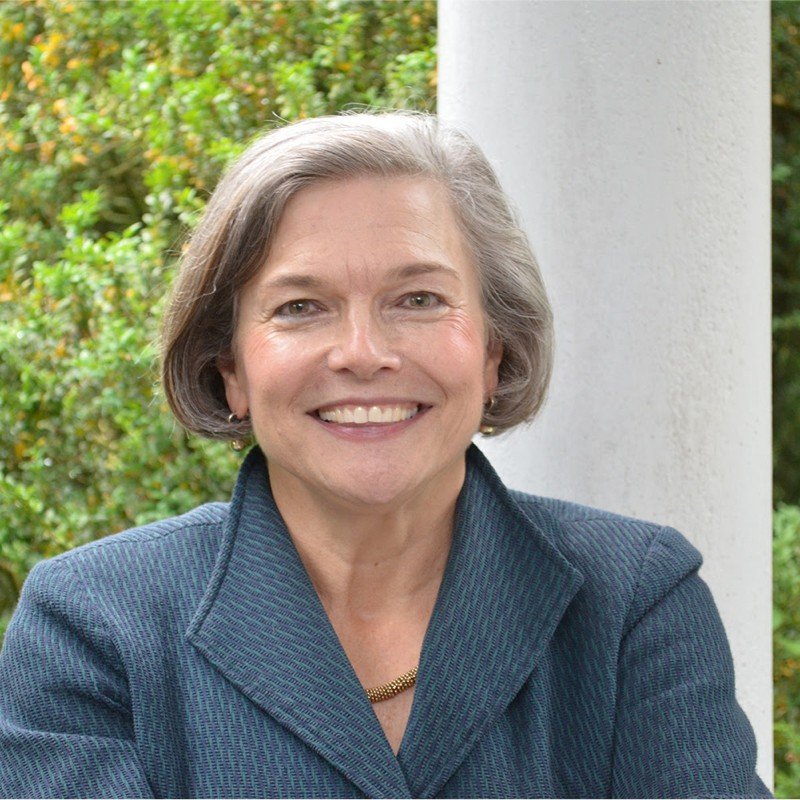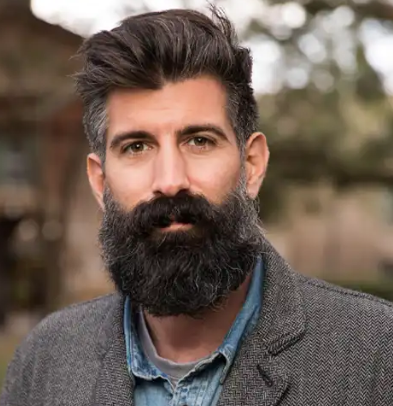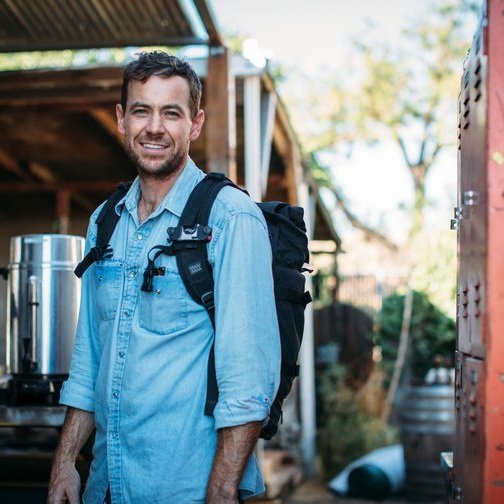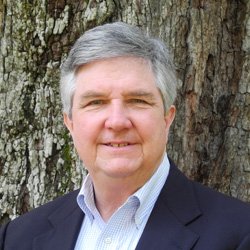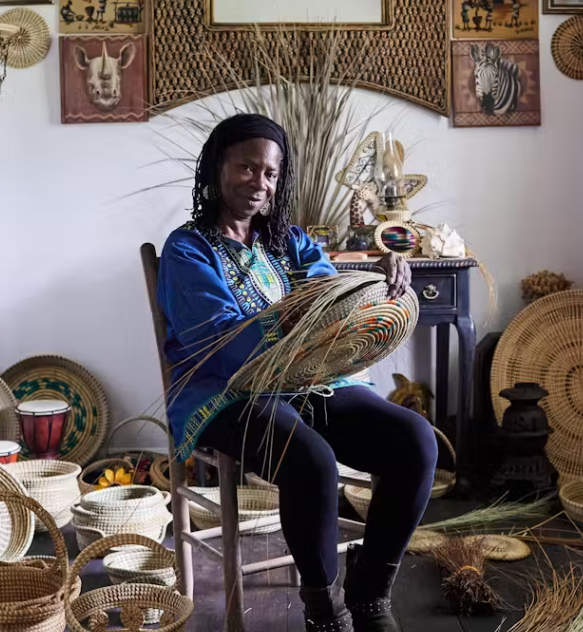Get ready to embark on a journey through Charleston's captivating past with our June Speaker Sessions!
We're thrilled to bring renowned local speakers and authors to our community, offering insightful discussions on topics ranging from the history of Charleston to the stories of the enslaved and cherished Lowcountry traditions.
Whether you're a history buff eager to uncover new insights or simply curious about the rich tapestry of our surroundings, there's something for everyone to enjoy and learn from.
Time: 6-7pm - FREE with advance registration.
June 4: Elizabeth Chew, Ph.D., CEO of South Carolina Historical Society — Descendant Engagement in the Interpretation of Enslavement: Lessons from Montpelier.
Dr. Elizabeth Chew will discuss the decades of Descendant engagement in the interpretation of slavery at James Madison's Montpelier, and the recent path to a relationship of structural parity between Descendants and the Board in the governance of the site.
June 11: Blake Scott, Ph.D., Historian, writer, associate professor of International Studies at College of Charleston and Joel Caldwell, Environmental journalist —The M.A.R.S.H. Project: History and Ecology in the Pluff Mud
The M.A.R.S.H. Project is a grassroots and community-based program working to revitalize and advocate for the unique marshland ecosystems of Charleston, South Carolina.
In this evening's talk, co-founders of The M.A.R.S.H. Project, Joel Caldwell and Blake Scott, share the story behind their work and how it intertwines with history and ecology in the lowcountry.
June 18: George W. McDaniel, Ph.D., Executive Director Emeritus, Drayton Hall
June 25: Henrietta Snype and Nakia Wigfall — A History of Sweetgrass Baskets and Tradition in the Lowcountry
About the Speakers
Elizabeth Chew, Ph.D.
Elizabeth Chew, Ph.D. is the new CEO of the South Carolina Historical Society. Prior, she has overseen projects to return the story of slavery to the plantation landscape, including the exhibition “The Mere Distinction of Colour”, winner of six national awards, and collaborated on convening the National Summit on Teaching Slavery and its publication, “Rubric of Best Practices in Descendant Engagement in the Interpretation of Slavery.” As curator at Monticello for 13 years, Chew was instrumental in expanding interpretation to include women, slavery, and domestic work. She curated the exhibition ‘To Try All Things’: Monticello as Experiment and was co-curator, with Rex Ellis of the National Museum of African American History and Culture, of the exhibition Slavery at Jefferson’s Monticello: Paradox of Liberty. Before joining the team at Montpelier, she was Betsy Main Babcock Director of the Curatorial and Education Division at Reynolda House Museum of American Art in Winston-Salem, North Carolina. An art historian, she has lectured, taught, and published widely on ways in which art and architectural patronage relate to gender, race, and family politics.
Blake Scott, Ph.D.
Historian, writer, associate professor of International Studies, Blake Scott is interested in the diverse cultures and ecologies that make up the Caribbean and the US South. He teaches introductory and advanced courses in the International Studies Program, examining issues of cultural and economic globalization, travel and migration, and global environmental change. In addition to many essays and articles, he is the author of the book “Unpacked: A History of Caribbean Tourism” (Cornell University Press) and co-editor of “Port Cities of the Atlantic World: Sea-Facing Histories of the US South” (University of South Carolina Press). In support of his research, he has received fellowships from the Fulbright Program, the Smithsonian Institution, the University of Texas at Austin, and the School of Languages, Cultures, and World Affairs at the College of Charleston.
Joel Caldwell
Joel Caldwell is a photographer, writer, and filmmaker. For the past ten years he has focused on telling conservation and environmental justice stories from around the world. In recent years, his focus has shifted to uplifting stories of ecosystem restoration and humanity’s connection and place within nature.
George W McDaniel, Ph.D.
George W. McDaniel, Ph.D. is the author of "Drayton Hall Stories: A Place and Its People". The first book of its kind in the nation, it is the result of his long career in education and history museums that began with the Smithsonian Institution, and his experiences in Europe, Africa, and Vietnam, where he saw peace and war and learned first-hand about cultural differences and commonalities.
For over 25 years, he served as the Executive Director of Drayton Hall, a historic site in Charleston, SC, of the National Trust for Historic Preservation, earning awards at local, state, and national levels. He made it his mission to record oral interviews with descendants (both White and Black), board members, donors, staff, and professionals in history, tourism, museums, architecture, and historic preservation. The resulting book, “Drayton Hall Stories: A Place and Its People” presents a fascinating mosaic of stories and insights that uses history to bring diverse people together, preserving their words for future generations and offering a place-based strategy that is applicable nationwide.
A native of Atlanta, he earned a BA from Sewanee, a MAT (history) from Brown University, and PhD (history) from Duke.
Today, he is the president of McDaniel Consulting, LLC, a strategy firm that helps organizations use history to build bridges to broader constituents. An engaging speaker, he combines his professional perspectives with the needs and opportunities of his audience and clients.
Henrietta Snype
A native of Mount Pleasant, South Carolina, Henrietta learned the art of weaving Sweetgrass Baskets at the age of 7 from her mother, Mary Mazyck, who learned the art from her mother Elizabeth Johnson and so on since before the Middle Passage. She has taught this valuable skill to her children and grandchildren. Henrietta went on to pursue an education in business after graduating high school. In the early 1980’s, she began working in schools. Henrietta continues teaching this art in schools, universities, giving demonstrations, and workshops around the world.
Henrietta is the pioneer of Sweetgrass basket making. Her work has been exhibited at the Smithsonian, the Henry Ford Museum, The McKissick Museum and the Birmingham Arts Festival. In 2018, Henrietta was received the Heritage Award from the South Carolina Arts commission.
Nakia Wigfall
Nakia is a fifth generation Authentic Sweetgrass Basketmaker who is well-versed and gives presentations and demonstrations in the art of basket making and Gullah traditions. She and her siblings grew up in the Six Mile community in north Mount Pleasant, where they were taught the exacting craft by their mother, who was taught by her mother. She is also the author of “Butsie's First Basket: Sweetgrass Gullah Series,” a children’s book.
